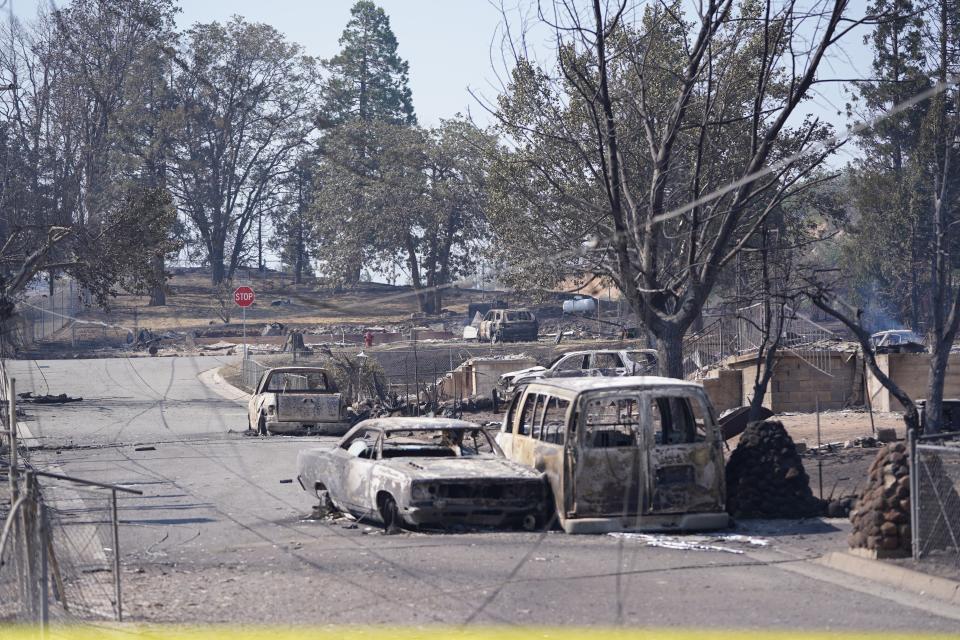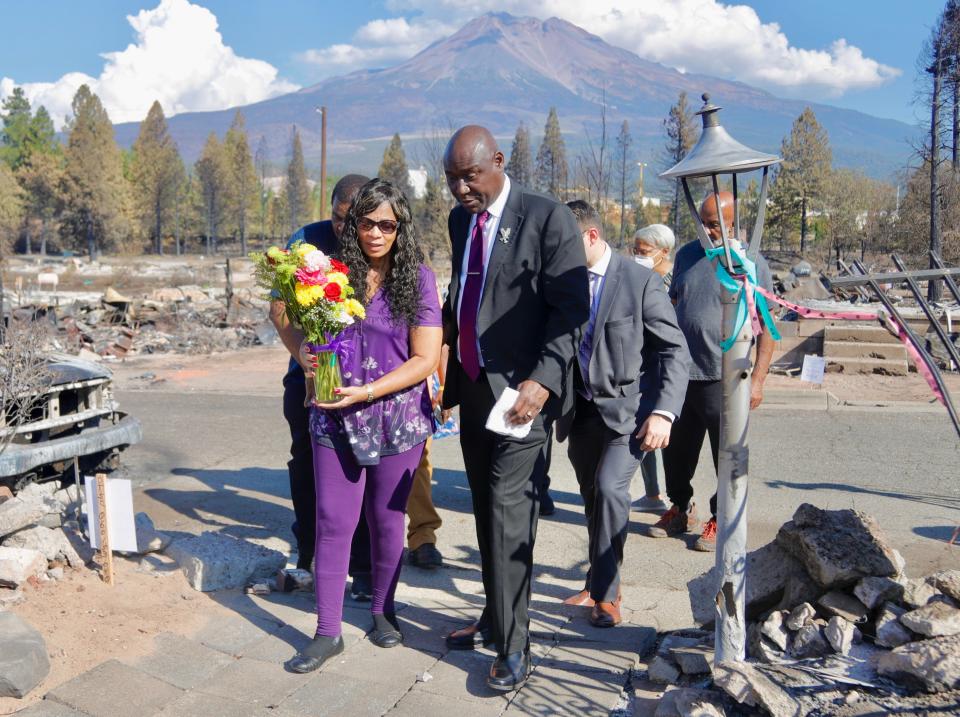Settlement proposed for Mill Fire lawsuit, 'goal' to rebuild Weed community
More than 600 people who lost their homes or were otherwise affected by the Mill Fire in Weed are reviewing tentative settlements with the lumber company that is linked to the fire.
Redding attorney Russell Reiner said on Tuesday that each individual affected by the September wildfire has received a settlement offer from Roseburg Forest Products Co. of Oregon. Reiner said he is representing about 70% of the townspeople who were affected by the Mill Fire, which burned nearly 4,000 acres, killed two Weed residents and destroyed 118 structures, many in the historically-Black community of Lincoln Heights.
While the cause of the Mill Fire officially remains under investigation, Roseburg announced it was investigating claims that a water-spraying machine used to cool ash at its veneer mill in Weed ignited the Mill Fire on Sept. 2.

The individuals Reiner represents must approve their specific settlement offer, said Reiner, of the law firm Reiner, Slaughter, Mainzer & Frankel, LLP. Part of the settlement agreements include keeping specifics confidential.
Reiner said his clients who are now reviewing their settlements include families who lost loved ones, suffered bodily injuries, lost their homes, had to flee the fire and were displaced from their homes, or lost timber or had cherished personal property destroyed in the blaze.
“The Mill Fire was catastrophic for many families,” Reiner said. “Our clients, the City of Weed and Roseburg want the homes that burned down in Lincoln Heights, Lake Shastina, Hoy Road and elsewhere to be rebuilt. We believe the settlements will help put our clients in a position to rebuild their neighborhoods and communities.”

Established 125 years ago, Weed is one of the North State's many once-thriving lumber towns. Its segregated Lincoln Heights community sprang up near Roseburg's lumber complex as Black people from the South moved to the area to work at the company's mill.
In September, Florida-based civil rights attorney Ben Crump — who represented families after the deaths of George Floyd and Breonna Taylor — said he also represents “several dozen” people who live in Lincoln Heights.
Representatives for Crump could not immediately be reached for comment on where their lawsuit stands.
The Mill Fire scorched 3,935 acres and destroyed 118 buildings before it was fully contained on Sept. 13.
The two women killed in the blaze were 73-year-old Marilyn Hilliard and 65-year-old Lorenza Mondoc Glover, both of Weed. The blaze also injured three people, including one person who needed to be flown to UC Davis Medical Center's burn unit, authorities said.
This article originally appeared on Redding Record Searchlight: Can Black community destroyed by Weed's Mill Fire be rebuilt?

